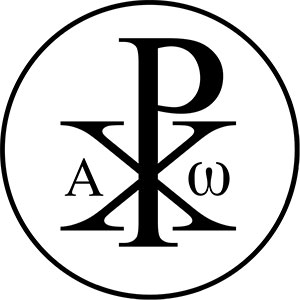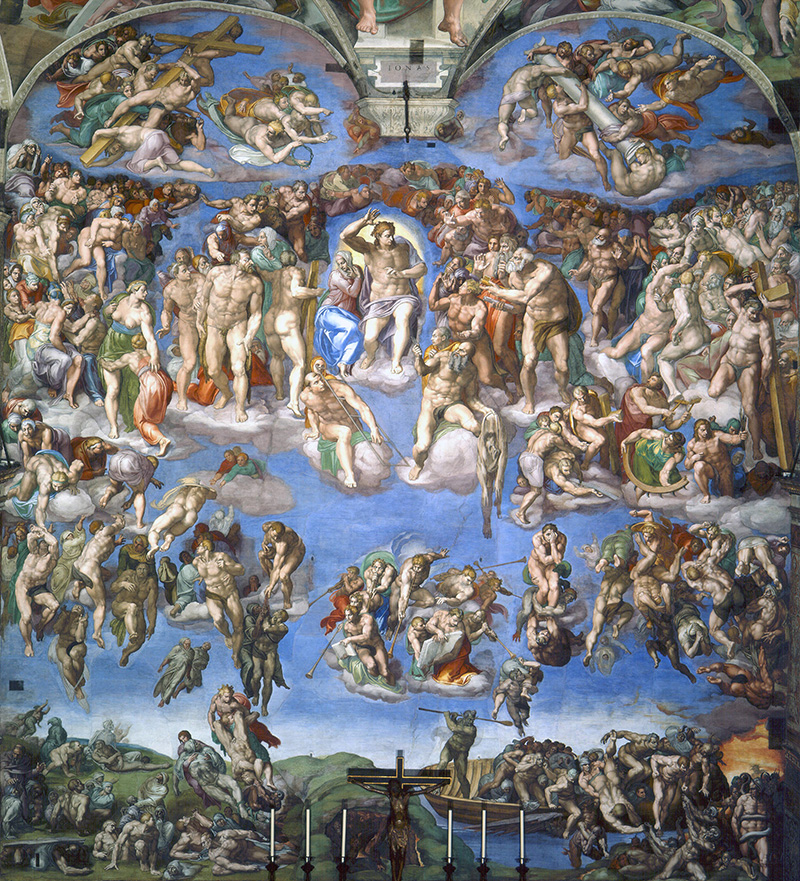 Credo: A 12-part series on the creed
Credo: A 12-part series on the creed
Editor's note: This article is the seventh of 12 in a new series on the Creed by Deacon Matthew Newsome. Explore the series.
In the previous article of this series, we focused on Jesus’ Ascension into heaven. We now turn our attention to His Second Coming in glory to judge the living and the dead. The Catechism of the Catholic Church teaches that “Before His Ascension Christ affirmed that the hour had not yet come for the glorious establishment of the messianic kingdom awaited by Israel, which, according to the prophets, was to bring all men the definitive order of justice, love, and peace,” and calls this present age a time of “witness … waiting and watching” (CCC 672).
We wait with hope, because Christ, our Head, has conquered sin and death, and where the Head goes, the Body will follow. Our task in the intervening time is to give witness to His victory, to preach the good news to all nations, baptizing them and incorporating them into the Body until Christ has come to full stature. And because we do not know when the final consummation of the kingdom will come, we remain ever watchful for that day.
The fact that Jesus Himself says it is not for us to know the times and seasons the Father has established for these things hasn’t stopped many would-be prophets over the centuries from making predictions about when the Lord would return. The one thing these predictions have in common is that they have so far all been wrong.
That doesn’t mean the scriptures don’t offer any information about the end times. We are told that after “the full number of Gentiles” has entered the Church, “all of Israel will be saved” (Rom 11:25-26). Jesus speaks of wars, famines, earthquakes, persecution and false prophets that will precede the end, at which time the Son of Man will come with power and glory to gather the elect.
There has been no shortage of wars, famines and persecutions in the 20 centuries since the founding of the Church. False prophets are a dime a dozen. That is just as true today as it was in the first century. Every generation is tempted to look at calamitous events in the world and see them as signs of Christ’s coming. Those who warn that Christ is coming soon are not wrong: but what does “soon” mean to the One for whom a day is like a thousand years and a thousand years as a day (2 Pt 3:8)?
We are in the End Times and have been since the day of the Ascension. We just don’t know how long they will last. God has His own timing, as the scriptures teach us: “The Lord does not delay His promise, as some regard ‘delay,’ but He is patient with you, not wishing that any should perish but that all should come to repentance. But the day of the Lord will come like a thief, and then the heavens will pass away with a mighty roar and the elements will be dissolved by fire, and the earth and everything done on it will be found out” (2 Pt 3:9-10).
 While each of us faces our own particular judgment at the very moment of our death, it is at the final Judgment on the Last Day that “the conduct of each one and the secrets of hearts [will] be brought to light” (CCC 678). This public judgment is described by Christ as a sifting, or separation: sheep from goats, grain from chaff, wheat from weeds, good from bad, righteous from unrighteous, repentant sinners from unrepentant sinners, the humble from the proud, those who say “Thy will be done” from those who say “my will be done,” those who love God and neighbor from those who only love themselves. There will be no more secrets. All will be made manifest.
While each of us faces our own particular judgment at the very moment of our death, it is at the final Judgment on the Last Day that “the conduct of each one and the secrets of hearts [will] be brought to light” (CCC 678). This public judgment is described by Christ as a sifting, or separation: sheep from goats, grain from chaff, wheat from weeds, good from bad, righteous from unrighteous, repentant sinners from unrepentant sinners, the humble from the proud, those who say “Thy will be done” from those who say “my will be done,” those who love God and neighbor from those who only love themselves. There will be no more secrets. All will be made manifest.
There is a certain trepidation that can accompany our thoughts of this final, public judgment. No one likes to feel judged by others, so the prospect of a “Judgment Day” where our hidden deeds and secret thoughts will be revealed does not sound appealing. But our dislike of being judged stems from the fact that we are very often judged unfairly, too critically or unjustly. What we fear is being misjudged. But we needn’t fear this from Christ, who came not to condemn the world but to save it (Jn 3:17). He knows the secrets of our hearts. He knows and understands our woundedness, our limitations and our hidden motivations, and He is both perfectly just and merciful.
A healthy amount of “fear and trembling” at the prospect of our judgment can motivate us to turn away from sin and accept the mercy of God. Yet for those who love God and strive to live as Christian disciples, it should not be something we fear, but something we anticipate with great joy. The final Judgment means more than condemnation of sinners. It means vindication for the innocent, peace for the persecuted, joy for those who have mourned, justice for those who were oppressed, and freedom for those held captive. It is when all will be made right – not just for a time, but finally and forever. It is no wonder that one of the most ancient prayers of the Church is “marana tha,” “come, Lord” (1 Cor 16:22).
In the final dialogue between Christ and His Church recorded in the Bible, Jesus says, “Yes! I am coming soon,” and the Church replies, “Amen! Come, Lord Jesus!” (Rev 22:20). May that glorious day find us ready to welcome our Lord.
Deacon Matthew Newsome is the Catholic campus minister at Western Carolina University and the author of “The Devout Life: A Modern Guide to Practical Holiness with St. Francis de Sales,” available from Sophia Institute Press.
Pictured above: “The Last Judgment” by the Italian Renaissance painter Michelangelo. This fresco, which covers the entire altar wall of the Sistine Chapel, depicts the Second Coming of Christ and the final and eternal judgment by God of all humanity. The dead rise and descend to their fates as judged by Christ, who is surrounded by the Blessed Virgin Mary and prominent saints. Altogether there are more than 300 figures, with the saved ascending to Heaven on the left and the damned descending at the lower right.



 Credo: A 12-part series on the creed
Credo: A 12-part series on the creed